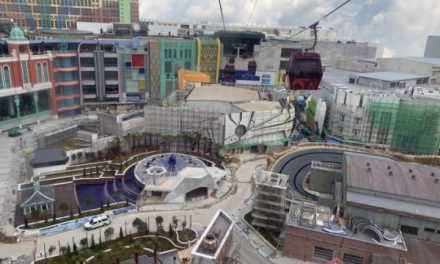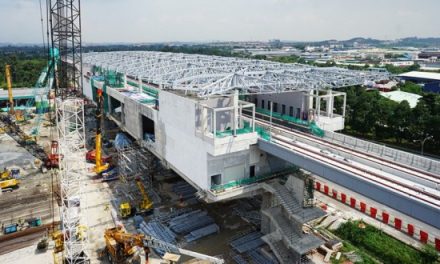Malaysian property prices to remain steady
House prices have remained steady despite a slowdown in property sales and a huge overhang of unsold units. According to JPPH, prices of residential property continued to grow, albeit moderately despite the current market glut. “The responsible lending measures by the central bank have shown a positive outcome in ensuring sustainable price growth in years to come.” Despite the challenging year in 2017, the performance of the local property market will continue to be sustained with the implementation of various property-related incentives and accommodative monetary policy. (The Star Online)
Ratio of housing loan approvals rose in 2016
Loan applications for residential property that were approved in 2016 rose from 50.2% in 2015 to 52.1% in 2016, according to NAPIC’s Malaysian Property Market Report 2016. However, this ratio was lower than the 52.9% recorded in 2014. The number of housing loan applications were significantly down by 18.4% in 2015, and the number of loan approvals also decreased by 15.3% from a year earlier. Measures to curb speculation in the market taken by Bank Negara have shown its impact on the property market. Loan approvals ratio for non-residential property showed minimal decline in 2016, but the total loan amount in ringgit had shrunk significantly over the last five years. (The Edge Markets)
Rehda: Review cooling measures to boost sales
Rehda has once again called for the government to review its property cooling measures to boost property sales. Its president Datuk Seri FD Iskandar Mohamed Mansor said measures taken by the government to reduce household debt have seen some results as the latest rate was down from 89.3% to 87.6%. Mortgages (good debt) have declined but car loans (bad debt) have increased. Loan rejections continue to pose a problem to potential buyers, despite an improvement in loan approval ratio. (The Edge Markets)
ML Global eyes more JVs, land buys for property projects
ML Global Bhd, which plans to diversify into property development and investment, is in the midst of talks to acquire more land and undertake joint ventures to develop small to medium scale projects. The announcement follows its partnership with landowner Alaf Cahaya Development Sdn Bhd to develop a mixed project with GDV RM270mil on a leasehold plot in Seri Kembangan, Selangor. It will comprise 74 commercial units and 398 service apartments to be completed in five years. (The Edge Markets)
RHB Islamic to finance RM31mil Kelantan PR1MA projects
RHB Islamic Bank Bhd will provide financing facilities totalling RM31.35 million to part finance two PR1MA projects in Kelantan. The financing will be provided to property developers AUEI Teras Holdings Sdn Bhd (AUEI) and Vertex Central Industries Sdn Bhd for a total amount of RM17.75 million for a PR1MA project in Kubang Kerian, and RM13.6 million for another project in Machang. (Malay Mail Online)
KUB buying Sabah plantation land for RM100.45mil
KUB Malaysia Bhd is buying an oil palm plantation land in Kinabatangan, Sabah, from Kwantas Corp Bhd for RM100.45mil cash to expand its oil palm business. The proposed acquisition is in line with KUB’s plans to expand its agro business, as it can generate immediate revenue through prime mature palms with good yields. In a separate announcement, Kwantas said it would use proceeds from the disposal to pay off some of its debt. (The Star Online)
 Malaysian passport ranked fourth most powerful in the world
Malaysian passport ranked fourth most powerful in the world
Malaysia’s passport is the fourth most powerful in the world, according to the Global Passport Power Rank 2017. Malaysia improved its position by two visa-free changes from 2016 to tie in fourth position globally with Japan as well as Switzerland, Netherlands, Belgium, Luxembourg, Austria and Portugal with an overall visa-free score (VFS) of 156. The number one spot was a tie between Singapore and Germany, with Sweden in second place. (The Star Online)





